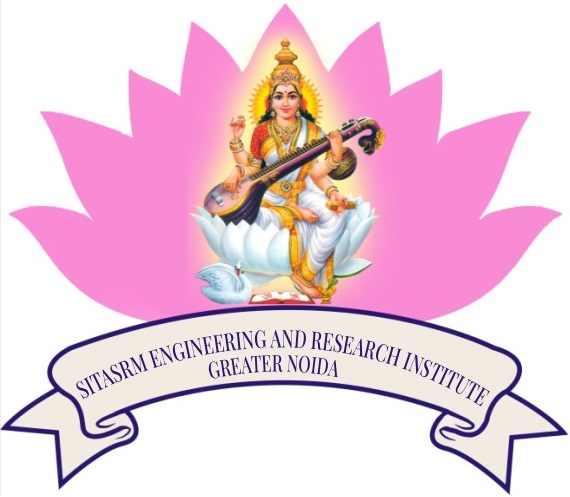 SITASRM ENGINEERING & RESEARCH INSTITUTE
SITASRM ENGINEERING & RESEARCH INSTITUTE
 SITASRM ENGINEERING
SITASRM ENGINEERING & RESEARCH INSTITUTE

SITASRM ENGINEERING & RESEARCH INSTITUTE
Menu
Cybersecurity in 2025: Essential Skills Every CSE Graduate Needs

Understanding Cybersecurity-Introduction
With cyber threats multiplying at an alarming rate in 2025, a critical question arises: Are Computer Science Engineering (CSE) graduates equipped to be the digital guardians of today and tomorrow? Cybersecurity is no longer a niche field; it's a fundamental necessity for every organization.
The demand for skilled professionals who can safeguard digital assets is soaring, positioning cybersecurity as a prime career path for CSE graduates. Whether your ambition lies in ethical hacking, network security, or cloud protection, acquiring the right skills is paramount. Let's explore the essential skills every CSE graduate needs to not just survive, but thrive in the current and future cybersecurity landscape.
Cybersecurity Best Practices
Risk Management: The Foundation of Cybersecurity
Every effective cybersecurity strategy starts with risk management. It's all about identifying vulnerabilities, assessing their impact, and implementing measures to reduce or eliminate risks. CSE graduates should understand frameworks like ISO 27001 and NIST, which guide companies in developing secure environments.
Tools like risk assessment matrices and threat modeling techniques help future professionals map out potential threats before they become incidents. This foundation enables a proactive approach—one of the pillars of cybersecurity best practices.
Network Security: Securing the Digital Infrastructure
Computer network security is vital for defending information systems against unauthorized access. CSE graduates need to grasp concepts like firewalls, VPNs, and intrusion detection/prevention systems (IDS/IPS).
Proficiency in IP protocols, network configuration, and monitoring tools such as Wireshark or SolarWinds is essential. Understanding how data travels and where threats might arise is critical to safeguarding network infrastructures in real time.
Handling Cyber Threats in Real-Time
Despite strong defenses, cyber incidents can still happen. This is where incident response comes into play. It includes preparation, detection, containment, and recovery from attacks. A well-trained CSE graduate will know how to use Security Information and Event Management (SIEM) tools like Splunk or IBM QRadar.
Speed matters. Being able to respond quickly and efficiently minimizes damage and ensures system recovery—a key aspect of cybersecurity best practices.
Ethical Hacking: Preemptively Identifying Vulnerabilities
Think like a hacker to beat one. Ethical hacking involves simulating attacks to find weaknesses in systems before malicious actors do. CSE graduates entering cybersecurity should understand penetration testing, vulnerability assessments, and exploit development.
Tools like Metasploit, Nmap, and Burp Suite are industry standards. Ethical hackers play a vital role in strengthening systems by proactively identifying and fixing potential entry points.
Programming: The Backbone of Cybersecurity
Solid programming skills are a must in cybersecurity. Whether you're automating tasks, analyzing malware, or scripting custom security tools, knowing how to code is key.
Python is widely used for automation and scripting, while C and C++ help understand low-level vulnerabilities. JavaScript is important for securing web applications. These languages help professionals both build defenses and understand how attackers might break them.
Cloud Security: Protecting Data in the Cloud Era
With most companies now running on the cloud, cloud security has become a top priority. CSE graduates need to understand cloud risks such as misconfigurations and insecure APIs.
Familiarity with major platforms like AWS, Azure, and Google Cloud is essential. Skills in data encryption, identity and access management (IAM), and secure deployment practices are increasingly valuable in a cloud-first world.
Technical Skills Required for Cybersecurity
A broad range of technical skills supports success in cybersecurity. These include:
-
Endpoint protection
-
Encryption techniques
-
Malware analysis
-
Log and traffic analysis
Hands-on experience in these areas gives graduates the confidence to handle real-world threats and apply computer network security principles effectively.
Entry-Level Cybersecurity Skills
Starting out? Focus on the basics. Entry-level skills include understanding TCP/IP protocols, securing operating systems, using basic hacking tools, and practicing safe coding techniques.
Getting familiar with platforms like TryHackMe or Hack The Box can give practical exposure. These foundational skills are essential for launching a successful cybersecurity career.
Programming Skills Required for Cybersecurity
Beyond knowing how to write code, CSE graduates need to understand how code interacts with systems. Bash scripting is useful in Linux environments, while Python remains a favorite for writing tools and automating tasks.
Programming knowledge helps professionals spot bugs, secure applications, and even reverse-engineer malware.
Cybersecurity Skills in Demand
In 2025, employers are searching for professionals skilled in:
-
Cloud security
-
Ethical hacking
-
Incident response
-
Threat intelligence
-
DevSecOps and Zero Trust architecture
Staying updated on emerging threats and tools is vital. Continuous learning ensures that CSE graduates remain relevant in the fast-changing cybersecurity landscape.
Soft Skills Needed for Cybersecurity
Technical know-how isn’t everything. Soft skills like critical thinking, attention to detail, and strong communication are just as important. Cybersecurity professionals often need to explain complex threats to non-technical teams.
Teamwork, adaptability, and staying calm under pressure are all valuable traits in high-stakes environments.
Cybersecurity Skills Roadmap for CSE Graduates
Starting your journey in cybersecurity? Here’s a quick roadmap:
-
Learn fundamentals: OS, networks, and security principles
-
Earn certifications: CompTIA Security+, CEH, or CISSP
-
Get hands-on: Internships, online labs, and projects
-
Choose a path: Cloud, ethical hacking, or incident response
-
Keep learning: Cyber threats evolve—so should your skills
Conclusion
Cybersecurity in 2025 offers endless opportunities for CSE graduates. From network defense and ethical hacking to cloud protection and incident response, the skillset is broad and exciting.
Focus on mastering both technical and soft skills. Embrace continuous learning. With the right mindset and tools, you can become a trusted defender in the digital world—ready to secure systems, protect data, and shape the future of cybersecurity.















































